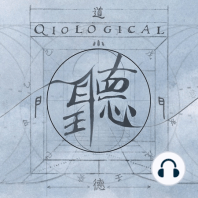50 min listen
147 Self Publishing for Acupuncturists
ratings:
Length:
72 minutes
Released:
May 26, 2020
Format:
Podcast episode
Description
These days pretty much anyone can have their own media outlet. The gatekeepers who used to control access to the airwaves and printing presses are pretty much gone. If you have something to share, especially something that focuses on or services a niche market, then this is the best time to be alive. And here in the midst of Covid-19 this just might be the perfect momnet to work on that book you’ve been noodling on as a “some day” project.Digital technology has been disrupting the various communications industries for a few decades now. The downside is anyone with a computer and some gumption can get their message out to the world, and that can make for some pretty lousy content. The upside is that anyone with a computer and some gumption can get their message out to the world, which means you can contribute the crowd you want to serve. But you’re going to have to learn to use the tools of digital publishing properly, and be responsible for the workflow and design. It’s not so much of a DIY, Do It Yourself project as much as it is a MIY, Manage It Yourself enterprise.In this conversation with Oran Kivity, author of Moxa in Motion with the Ontake Method and Sean Sumner, a consultant on self-publishing, we explore the basics of the brave new world of digital on-demand publishing.Listen in and find out why there has never been a better time to publish your own book. Head on over to the show notes page for more information about this episode and for links to the resources discussed in the interview.
Released:
May 26, 2020
Format:
Podcast episode
Titles in the series (100)
009 Voices of Our Medical Ancestors- Using the classic texts in modern practice • Leo Lok by Qiological Podcast
